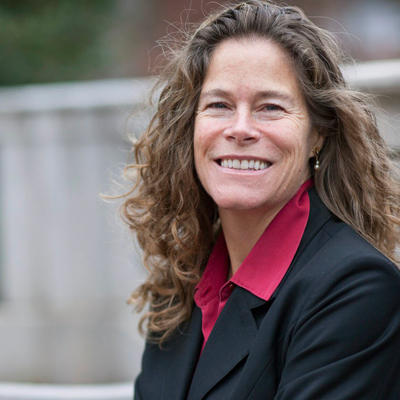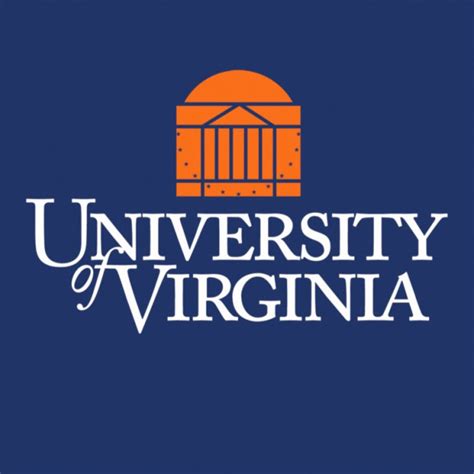Harnessing the land surface for the benefit of all
We have one earth surface -- what will we do with it and how will those decisions affect us? As we face a growing global population with an ever-increasing demand for food and other commodities we can only get from the land, how will land allocation among food, biofuels, and forests alter climate, ecosystem services, and the society that depends on both? The land surface is a powerful driver of global climate as well as sustaining our needs. Dr. Deborah Lawrence, Professor of Environmental Sciences at the University of Virginia, hopes to understand how we might harness the land surface to limit global warming, while continuing to provide essential goods and services. By studying the potential gains and limits of decisions to promote biofuels, forest conservation, or agricultural expansion, Dr. Lawrence assesses their trade-offs including impacts on climate and ecology, politics and economics, morality and our sense of who we are.
Truly sustainable agricultural development depends on wise stewardship of forest resources at a local, national and even global scale. In the decisions we make about the land, including whether to maintain forests, we must think about how what we do to the land affects the atmosphere, the oceans, and the planet as a whole. Dr. Lawrence’s research highlights what wise land management looks like from a perspective that spans the farm, the continent and the planet, as well as the corporation. She works to understand the collective impact of land use decisions by government policy makers, corporate agribusiness, and individual farmers in the tropics, and has grown increasingly interested in the effects of tropical deforestation on the global carbon cycle and the global climate system. Tropical deforestation is especially critical, as climate effects emanate from the deforested region, impacting food production around the world. For example, Dr. Lawrence has found that deforestation in the Amazon can actually affect rainfall in the Midwest where we grow food. Currently, Dr. Lawrence collaborates with climate modelers at the National Center for Atmospheric Research to investigate the role of the land surface in climate.
Current projects include:
- Modeling Studies at the Global Scale: Dr. Lawrence takes the three options for land use: agriculture, biofuels, and forest conservation to explore the impact of various land allocation across the globe. For example, is the likelihood of success of agriculture going to affect the likelihood of success in conservation? With an international, interdisciplinary team of scholars including anthropologists, ethicists, and economists, Dr. Lawrence addresses the impacts of these changes on human well-being, beyond the availability of fresh water and adequate food, asking whether humanity is morally impoverished by the climate and ecosystem changes caused by our land use decisions. With lawyers, policymakers, ethicists and engineers, Dr. Lawrence considers how we might push for more optimal land use allocation. She uses global climate models and global databases to explore scenarios, and engages scholars who have never looked at the outputs of global climate models. From Indonesia, Mexico, Costa Rica and now onto East Africa, Dr. Lawrence works directly with policymakers to help them make scientific and humanitarian choices, bridging the divide between the natural and social sciences and the humanities.
- Field-based Measurement: How much does tropical deforestation contribute to the anthropogenic greenhouse effect?, and how does deforestation alter the movement of water, winds and the energy balance of the planet? By using instruments, or towers, on the ground, Dr. Lawrence can examine and measure the differences in the movement of water, or changes in energy balances. Ultimately, Dr. Lawrence hopes to understand, from the ground, what happens on the land and in the atmosphere above it when we change its use. Field-based measurements will then validate the models, and improve the way decisions are made and influenced.
- Remote Sensing: The latest satellite technology from NASA provides a way to take ground measurements and link them to observations from space to determine the effects of land use across large swathes of land that would be impossible to sample on the ground. By comparing satellite data that shows a birds-eye view of the land with field measurements, Dr. Lawrence and her team are able to confirm that what they are seeing from space actually means something on the ground so that they can make better use of data to validate the model.
Funding Dr. Lawence will help propel her research forward in several ways, in her own words she describes the impact a contribution will make, "a $115,000 grant from the MacArthur Foundation will allow my group to work on the impact of biofuel expansion on climate, ecosystems and people in East Africa.The full program, with the National Center for Atmospheric Research and Appalachian State University and funded at a level of $550,000, combines climate assessment, monitoring and applied earth system modeling. It is designed to fill some of the most critical knowledge shortfalls hindering adaption and conservation planning for climate change in a biodiverse and vulnerable region of the planet."
Bio
Dr. Deborah Lawrence is a Professor of Environmental Sciences at the University of Virginia. Her research focuses on the ecological and climatological effects of tropical deforestation. She has spent the past twenty-five years doing field-based research in Indonesia, Costa Rica, Mexico and Cameroon. Her current research in Indonesia focuses on feedback between climate change and deforestation of peatlands for large-scale industrial oil palm cultivation. As director of the Food, Fuel and Forests Program of Distinction, she is leading a team of climate modelers, hydrologists, ecologists, engineers, lawyers, economists, anthropologists, and ethicists to study the impact of global land use allocation among food, biofuels, and forests on climate, ecosystem services and humanity in 2050.
Dr. Lawrence became interested in tropical deforestation as an undergraduate, when she spent a year in the rainforest of Borneo studying the interactions between plants and animals at Gunung Palung National Park in Indonesia. She found herself interested in what was happening outside the park--how humans interacted with the rainforest, and what that might mean for the future of biodiversity and sustainable development. She received a Fulbright scholarship when she graduated that took her to Cameroon in Central Africa, to study how people interact with forests there.
Then she returned to Indonesia with a grant from the Conservation Food and Health foundation to study the ecological constraints and impacts of shifting cultivation in the rainforests outside Gunung Palung National Park. She was hooked. She worked hard, living in a village over a year and a half, getting to know how Dayaks live and their impact on the rainforest landscape. She discovered there the question that would drive her research for the next 15 years: in secondary forests that come back after shifting cultivation, why is tree diversity and biomass so different from place to place? What does it mean for the future of biodiversity? What does it mean for the future of this farming practice, and the people who depend on it?
When she was spending her time in Borneo as a grad student, she remembers walking through the logged forest to her research site, feeling sad about the forest being torn apart to provide timber. The edge of the road was scattered with damaged trees, and the forest seemed to be in ruins. 15 years later, when she re-visited her old research site, she saw that the forest along the way had turned into an oil palm plantation -- and then she realized that the logged forest had still been a forest, and it could have come back. Now that the forest had become a plantation, it would never be a forest again. “You don’t know what you have until you see otherwise;” she remarks, “I wonder now -- if we’re going to shift to yet another commodity, am I going to start missing the oil palm plantation?” We tend to think we know what’s best for the world, but we don’t always know -- and sometimes we make big decisions based on our lack of knowledge, not only for the people nearby but also for everyone else around the world. Therefore, Dr. Lawrence is interested in land use changes and what they mean for all of us -- humanity, plants, and animals -- for generations upon generations. Her goal is not to tell people what to do with the land, but to help scope out options by having conversations with people of all kinds including local villagers, as well as scholars, government officials, business people, and people in non-government organizations.
Outside of research, Dr. Lawrence is an avid gardener who enjoys food grown in her own garden. She also has two children, 8 and 11, who ask, “Are we going to do something about climate change?” She tells them, “We absolutely are.”
For more information, visit http://www.evsc.virginia.edu/lawrence-deborah2/
In the News
Virginia Insights, NPR-WMRA radio
Locus-Focus, KBOO radio
Washington Post (US)
Yale Environment 360 (US)
Publications
Videos
Awards
Provost’s Award for a Global Program of Distinction in Food, Fuel and Forests, 2014
Superior Honor Award from the US Department of State, 2010
for work resulting in the Copenhagen Accord at the UNFCCC
Guggenheim Fellowship and Fulbright Scholarship, 2009
Jefferson Science Fellowship, 2009
from the National Academy of Sciences
Sustainability Science Award, 2009
from the Ecological Society of America


